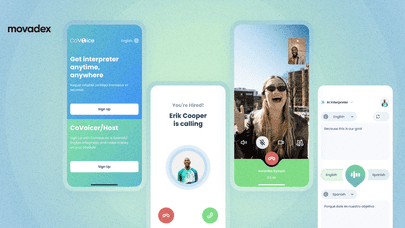Running a blog is no easy task. You have to write relevant content in a world where everything changes so rapidly that you can literally start writing something, and it's not relevant the moment you post it anymore. In this article, I will be sharing my experience with running a blog, and all the processes I usually go through. To me, there are a lot of good sides to running a blog, so let's talk about it, and try tuning yours to success.
Step 1. Getting Ready
Do not just go and start writing for the sake of it: there are essential steps that you have to go through first. You can't be successful without proper preparation, and what is even more important, you have to tune your writing environment into something that will be comfortable for you. I mean it, you'll have to do the same thing over and over again, so you might want to work on getting cozy.
Integration
If you have the ability, integrate the blog to your main website. That way, you will be writing custom content, and boosting your SEO at the same time. By having your blog integrated into your website, search engines will find more relevant keywords and index your business higher and higher in the search results, which is one of the main reasons for starting a blog.
Schedule
Your schedule is a great way to self-discipline yourself into writing regularly. It doesn't mean that you have to do a million posts per week, moreover, it will hurt the quality of your content, it means that you will have something to aim at. Try writing two blogs a week, and see where you can go from there. From my experience, you shouldn't go over two to three, because it really wears you out: coming up with unique content is no easy task.
Tools
I have tried many tools for writing, but the best one yet is Notion. It is a great way not only to write but organize everything in one place. You can create a calendar, set reminders, and track every blog post there. Besides, it has one of the most comfortable writing experiences I've ever had: it's a pleasure to work there. Apart from that, there are also collaboration capabilities: you can have your colleagues write their part if you're doing an interview or something of that sort. Another tool that I should mention is Grammarly: it's a great way to proofread yourself after a writing session. It's almost impossible to write perfectly and quickly at the same time, especially when you are on a tight schedule, so be sure to always double-check your post before posting it.
Post Funnel
There are many ways to write, but I found the most comfortable way for me to do it. I have created four stages for my blog posts:
Ideas
When the new week is on the way, I come up with three blog posts that I'm going to write. They go to the ideas section, where they are waiting for their turn. What I like to do is write the exact title and subtitle right away so I don't have to waste time on that later on. I like my posts to be organized and looking good on all stages, so I take some extra time to set up an emoji and a background in Notion, it's just a little thing that helps me to boost my productivity and mood: just a trick to make my brain feel like I'm doing a different activity each time.
Writing
When it's time to write an article, I transfer it to the writing section. I do my thing, and it stays there until it's fully finished and proofread.
Waiting For Visuals
I collaborate with our design team to come up with visuals for my posts because let's be real: people are getting hooked on visuals first, and then they read. Besides, keeping the blog backed up by visuals is a great way to boost its uniqueness, we are a creative agency after all!
Posted
When everything's done, I post the article and review it live for one more time. If something's wrong, I correct it right away. After I am sure that everything is alright, I transfer the article to posted section.
Stage Fright
We always think of stage fright as a thing for live performances only, but it's a real thing for blogs too. I had it for a month when I started doing blogs, but it goes away with time. You're a professional here, and you know what to do. If not, go and research until you are comfortable with writing about a certain thing, and you'll get over it! It's perfectly fine to worry about your audience's reaction, but it's not the end of the world if it's negative. Turn the situation around and use it for your benefit: convert negative feedback to positive change.
Step 2. Blogging
You have your routine set up, and now it's time to get to the tips that helped me to stay on track. Remember: these are my experiences, and yours might be different, so always take everything that internet people say with a grain of salt.
It's Not a High School Essay
When people get into blogging, they always try to follow some rules: school or college ones, and it's just not right. I get it, you don't know how to do it differently, and I have a quick and easy solution for it: When you are writing, don't sound like you present something to the audience, speak directly to them. Don't write "people" all the time, use "you", speak to your reader. That way, it will be both engaging and easier to read. Generally, try to be more human and informal. Get rid of the essay-like ways and do your thing as nobody else does!
Always Do Research
You can't possibly know everything. When running an IT blog, there are a lot of different niches that you have to cover: design, development, marketing, sales, quality assurance, management, the list goes on and on. That's why I recommend always do your research before even thinking of starting to write. Search the internet, get the main ideas, write them down, and only then get to writing. That way, you won't be misinforming people, and be comfortable with blogging about an unknown thing.
Write About What You Love
When you speak, people can hear your tone, and read emotions from your face. It's easy to spot the difference between you being passionate about something when you're speaking, but what about writing? Believe me or not, but it's as easy to tell if somebody doesn't care about the thing they are writing about. That's why you have to write with passion, and with passion comes quality.
Be Personal
When I'm writing, I always try to include a piece of me in every blog, making it more personal. It feels more natural for me and you this way because it's easier to relate to something that has soul in it rather than a boring formal post about whatever-I-just-read. Being personal is something that will help you to establish connections with your readers and encourage them to read your blog, not just scroll through it. Apart from it, it will be more likely that your readers will convert into your clients: a personal blog is a really big boost for credibility.
Offer Value
Value is the most important thing in every aspect of your life, and your blog is not an exception. When writing about something, ask yourself, will it be valuable for your audience? It should be because we are designed to search for value in everything that we do. If your content is not valuable, people simply won't read it. In fact, there won't be any reaction whatsoever. Why bother spending your time on something that won't bring me any benefit?
Consider Marketing
Your blog won't (sadly) get popular by itself, you have to market it. There are many ways to do it, but the best one is to post it on social media. For me, the best platform for this is LinkedIn: I post them there and encourage people to engage with my posts. Discussion is the best way to draw attention to your blog.
Consider Your Audience
Your audience may be quite mixed, so you might want to spend some time looking into how you should be presenting your content to them. Sometimes, you'll be writing about something specific to one category, so your language will be filled with terms that a wide audience won't understand, and that's okay because you target specific people. But at other times, make sure that your posts are easy to just grab, read, and understand right away. Don't be afraid to be simple, as it opens a new door for non-professionals, and widens your audience.
Don't Overuse Passive Sentences
Passive voice is very boring and overcomplicates something that shouldn't be. Sometimes, of course, you can't avoid it, but you should try. The blog attracts leads. Leads are being attracted by a blog. See the difference? The first sentence is just so much more natural and reads with ease. The second one, on the other hand, is really hard to swallow.
Format Like a Pro
Formatting is your best friend, and you have to make the best out of this relationship. Be sure to divide your content into proper headers, subheaders, use bold text when needed, and the most important thing: always divide every block of text into paragraphs. It's a very simple thing, but it increases the readability of your text like no other. It works just like this. Boom, another line, and the focus shift. Use it to your advantage!
Use It to Get More Sales?
Blogs today are different from something that they were in the past: they are meant to be a marketing tool apart from their educational or personal part. There is a catch though: you can't write blogs to just blindly sell. Their main goal is still to educate and share your experience, and sales are second on the list.
Be Honest
The previous point leads us to honesty. What is your main goal, why have you decided to blog? Mine is to create content and share it with people who'll find it useful or interesting. There is nothing wrong about thinking about it the other way around, you can sell with blogs, but it's just a tool to boost them, not drive them.
Be Yourself
After all the tips that I've come up with, the most important one is this: be yourself. Writing is first and foremost a creative process, so don't let anyone interrupt it. Being yourself is a piece of good advice for everyday life as well, but we're talking about blogging here, so be sure to express your thoughts in a personal, unique way, I know you have it in you.
Is That All?
Blogging is a learning process, and to be honest, I discover new tips and tricks every day. No matter if you are just starting, or you're a pro, it's important to be open to some advice, and learning in general. The more you know, the better your writing is. Stay tuned for more content, because it's coming your way!




